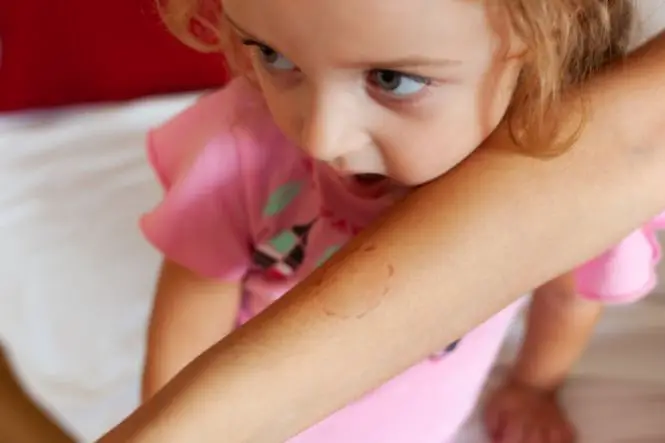Panic or anxiety attacks in young children are not uncommon, and you should be reassured that there are many, many parents going through the same process as you at the moment.
Panic attacks can be triggered by a number of things including past experiences that have upset or unsettled them, a very vivid imagination, a change in diet and learnt responses from other children or even relatives that can influence how children see things. However, it is sometimes better not to look TOO closely at the reasons behind this behaviour and instead concentrate on moving forward by trying not to get too stressed about the situation. A stressed out parent will cause their children to be stressed as well so try to stay calm about the situation.
Spend time focusing on all the things that your child is good at and enjoys. By taking this approach you will be diverting attention away from the problem and will hopefully help your child to relax and think about something else. Try and do this for a few days and do not be tempted to put your child in the situation that makes them anxious, and instead spend time having fun-painting, drawing, walks in the park and just playing with your child will all help to distract him from his worries and anxieties. It may sound basic, but also ensure your child has a well balanced diet. Changes in nutrition can have a big affect on a child’s behaviour.
Experts often say that children who suffer from panic attacks in certain situations do so because they think they are not good enough at something, after a few days of relaxed playing try to gently explore this and see if you can find out anything at all about why he is finding the situation so stressful. Do not put him under pressure to tell you too much.
Anxiety or panic attacks in children can suddenly stop, and by staying positive and optimistic and focusing on all the good things that you child achieves, you will soon see a difference. If the problem persists and you feel you need extra support, contact your GP or health visitor and talk to your child’s teacher.


